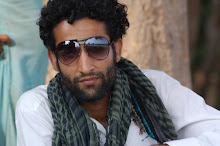
An Indonesian businessman who played a leading role in a plot to undermine the graft eradication agency in one of Asia's most corrupt countries was sentenced on Tuesday to four years in prison.
Indonesia is attracting growing interest from foreign investors, but bribery is seen as a top political risk and a factor hampering growth in Southeast Asia's largest economy.
Anggodo Widjojo, the brother of a fugitive graft suspect, was caught on tape last year conspiring with senior law enforcement officials to frame two officials at the Corruption Eradication Commission (KPK) to weaken the powerful agency.
The plot followed his failed attempt to bribe the two officials to drop a graft case against his brother, Anggoro Widjojo.
The attempt to frame the two KPK officials prompted outrage among ordinary Indonesians. It illustrated the extent to which corruption pervades the legal system and the lengths to which powerful vested interests will go to avoid being held to account.
It was also seen as a test of President Susilo Bambang Yudhoyono's commitment to reform in the face of enormous resistance from powerful figures who had prospered under the old way of doing business.
"The defendant's acts by giving money to take care of the case against his brother have hampered corruption eradication efforts," said one of the judges at the corruption court.
State prosecutors had sought a six-year jail term.
The Widjojo wiretaps, played in court and televised last year, sparked nationwide calls for legal reform. Two days after they were aired, Yudhoyono announced he was making judicial reform a policy priority in his second term.
The KPK is seen as one of the most effective tools in tackling graft and analysts say efforts to undermine it should be taken very seriously. Some critics are concerned that those convicted of corruption are being treated too leniently.
Kevin O'Rourke, a Jakarta-based political risk analyst, said the sentence was standard for a corruption case.
"However, the framing scandal revealed deep deficiencies in the legal system, and key personnel, that still remain unaddressed," he told Reuters.

No comments:
Post a Comment